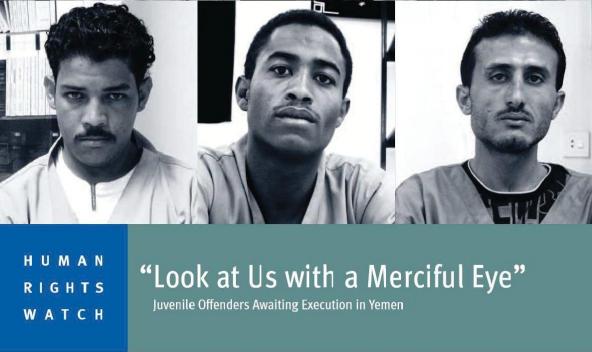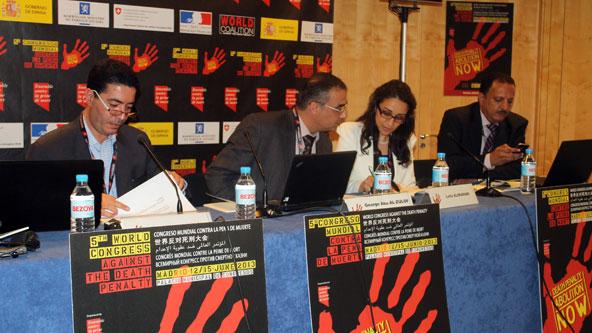
“Look at us with a merciful eye”
MENA
Yemen’s government should stop seeking and carrying out the death penalty for child offenders, Human Rights Watch said in a report released on March, 4th. President Abdu Rabu Mansour Hadi should immediately reverse execution orders for three alleged juvenile offenders on death row who have exhausted all appeals and could face a firing squad at any moment.
The report found that at least 22 individuals have been sentenced to death despite evidence that they were under age 18 at the time of their alleged crimes. In the last five years, Yemen has executed at least 15 young men and women who said they were under 18 at the time of their offense.
Most recently, on December 3, 2012, a government firing squad in Sanaa executed Hind al-Barti, a young woman convicted of murder whose birth certificate indicated she was 15 at the time of her alleged crime.
President Hadi should order a review of all death sentences where there is doubt that the individual was at least 18 at the time of the offense, and commute all sentences when evidence regarding an offender’s age remains inconclusive or in conflict, Human Rights Watch said.
Yemen’s penal code and international law prohibit the execution of juvenile offenders
Since 1994, Yemen’s penal code has banned the execution of juvenile offenders and stipulates a maximum penalty of 10 years in prison for individuals under 18 who commit capital offenses.
However, juvenile offenders faced serious obstacles when they tried to prove their age in court, Human Rights Watch found. In some cases, defendants simply lacked the documentation to prove they were under age 18 at the time of their alleged crime.
Yemen has one of the lowest birth registration rates in the world: among a population of more than 24 million, the government registers only 22 percent of births, and only 5 percent of births among poor and rural populations, according to the United Nations Children’s Fund, UNICEF.
Yemen has ratified both the International Covenant on Civil and Political Rights and the Convention on the Rights of the Child, which specifically prohibit capital punishment of anyone who was under 18 at the time of the offense.
When courts cannot establish conclusively that a defendant was 18 or older at the time of the alleged crime, international law indicates that the courts may not impose a death sentence. The United Nations Committee on the Rights of the Child, charged with interpreting the Convention on the Rights of the Child (CRC), has stated that, “If there is no proof of age, the child is entitled to a reliable medical or social investigation that may establish his/her age and, in the case of conflict or inconclusive evidence, the child shall have the right to the rule of the benefit of the doubt.”
Yemen is one of only four countries known to have executed people in the last five years for crimes committed as children. The others are Iran, Saudi Arabia and Sudan.






